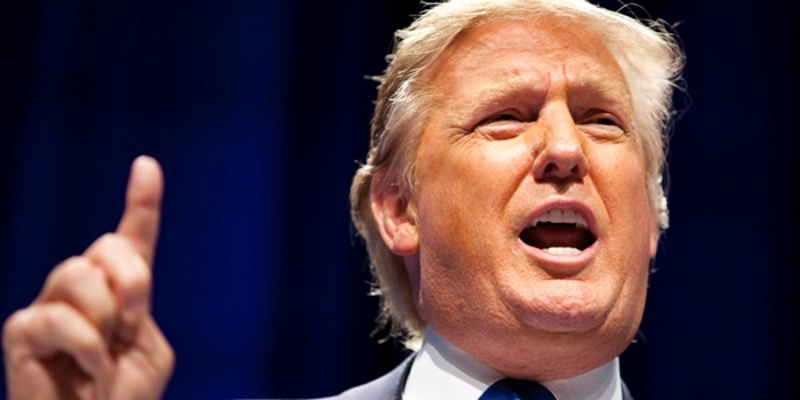
The Success of Outsider Candidates (Op-Ed)
By: Gabriel Michael Sachs
Donald Trump has used his “outsider” status to surge ahead in the polls. The outsider appeal is not new, and in fact, outsider candidates have been an appealing option for the presidency since our representative democracy’s inception. Whether it’s General George Washington or Governor Jimmy Carter, individuals outside the political establishment have consistently found their way to the White House. At a time of low public trust in government, the outside appeal resonates with voters. But, for the Republican Party, Trump’s campaign has redefined what it means to be an outsider, causing much panic in the establishment of the Republican Party. After all, as these candidates surge, the party’s power decreases.
Since the days of General George Washington, military generals were the primary type of outsider candidates for the presidency. General Ulysses Grant famously translated his military triumph against the Confederacy into a White House victory. These heroes fought valiantly in the greatest of American wars and were rewarded for their service with political power. Of course, this trend would only last until the mid-20th century, with the swearing in of General Dwight Eisenhower to the presidency in 1952. Direct primaries were never held for the nomination of these outsider candidates. Instead, the party bosses chose the candidates for the nomination of their own party—seeing military men as capable of winning the votes of citizens with the popularity they had garnered with a wartime record.
Once the political parties began to lose some control over the nomination process, a new type of outsider candidate emerged. Outsider candidates that came from a military background were no longer the norm. Instead, outsider candidates typically held office in local or state government and attempted to use their non-elite credentials as a new type of political legitimacy—the honest and direct candidate. Governor Jimmy Carter of Georgia is an excellent example of this type of outsider candidate. In the 1976 Presidential Election, public trust in government was at an all-time low; Americans had grown tired of the status quo. President Nixon’s impeachment clouded the public’s opinions and feelings about government. Nearly 36% of Americans had complete trust in their government following Nixon’s resignation.1 President Ford’s approval rating was also quite low for an incumbent, so he decided to debate Governor Jimmy Carter. This proved disastrous to Ford’s second term aspirations. Governor Jimmy Carter positioned himself as the ideal outsider candidate in the debates. His charisma and professed honesty rejuvenated Americans who were still angry with Watergate and the subsequent pardon of President Nixon.
There is a similar feeling to the upcoming presidential election in 2016, as public trust in government is at 24%.2 Dissatisfaction with both major political parties is also evident, with neither of the major parties approval surging above 40%.3 This political climate is the perfect recipe for an outsider to surge, especially one that knows how to manipulate the media, and use the presidential debates to his favor. Donald J. Trump is helping redefine what it means to be an outsider. An outsider in this election cycle means someone without any political experience. Candidates like Ben Carson and Donald Trump are changing perceptions about being an outsider running for the presidency. In fact, the aforementioned candidates have consistently been surging in the polls. Most recently, Donald Trump garnered 27.5% nationally, and Ben Carson with 19.8% nationally.4 The outsider trend for this nomination is a continuation of the GOP’s unity problem between their establishment wing and tea-party conservatives.
In the last GOP primary, the outsider candidates surged early on in the primary contest, with the establishment candidate (Governor Romney) eventually earning the nomination. Many called this process the “flavor of the month;” the establishment GOP saw Herman Cain, Michelle Bachmann, Rick Perry’s rise to the top as temporary. Unfortunately for the GOP, since June of 2015, Donald Trump has been in either first or second place. He has the strong name recognition that the military generals enjoyed in the 19th and 20th century. However, instead of being a symbol of unity, Trump is essentially dividing the Republican Party. In the process, Trump is also alienating many different minority groups that the GOP had done so poorly with in the 2012 election. His supporters come from the old Southern Democrats, the same ones that Reagan converted into Republicans in the 1980’s. One can also see a resemblance to Governor George Wallace, who captured several southern states in 1968, with a segregationist platform. Unfortunately for my party, Trump doesn’t seem to be going anywhere soon. The fact that people like Trump are actually being seen as legitimate candidates is frightening for many in the country, even in the GOP. Many members of my party are disgusted with Trump’s empty rhetoric and childish behavior. He is not a real conservative and his candidacy is seriously weakening the Republican Party.
References:
1, 2: www.people-press.org/2014/11/13/public-trust-in-government/
3: http://www.gallup.com/poll/181985/neither-major-party-cracks-favorability-latest-poll.aspx